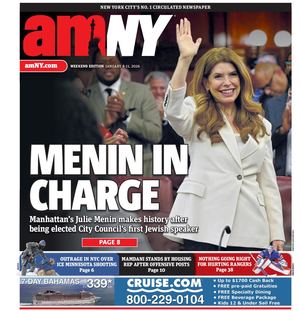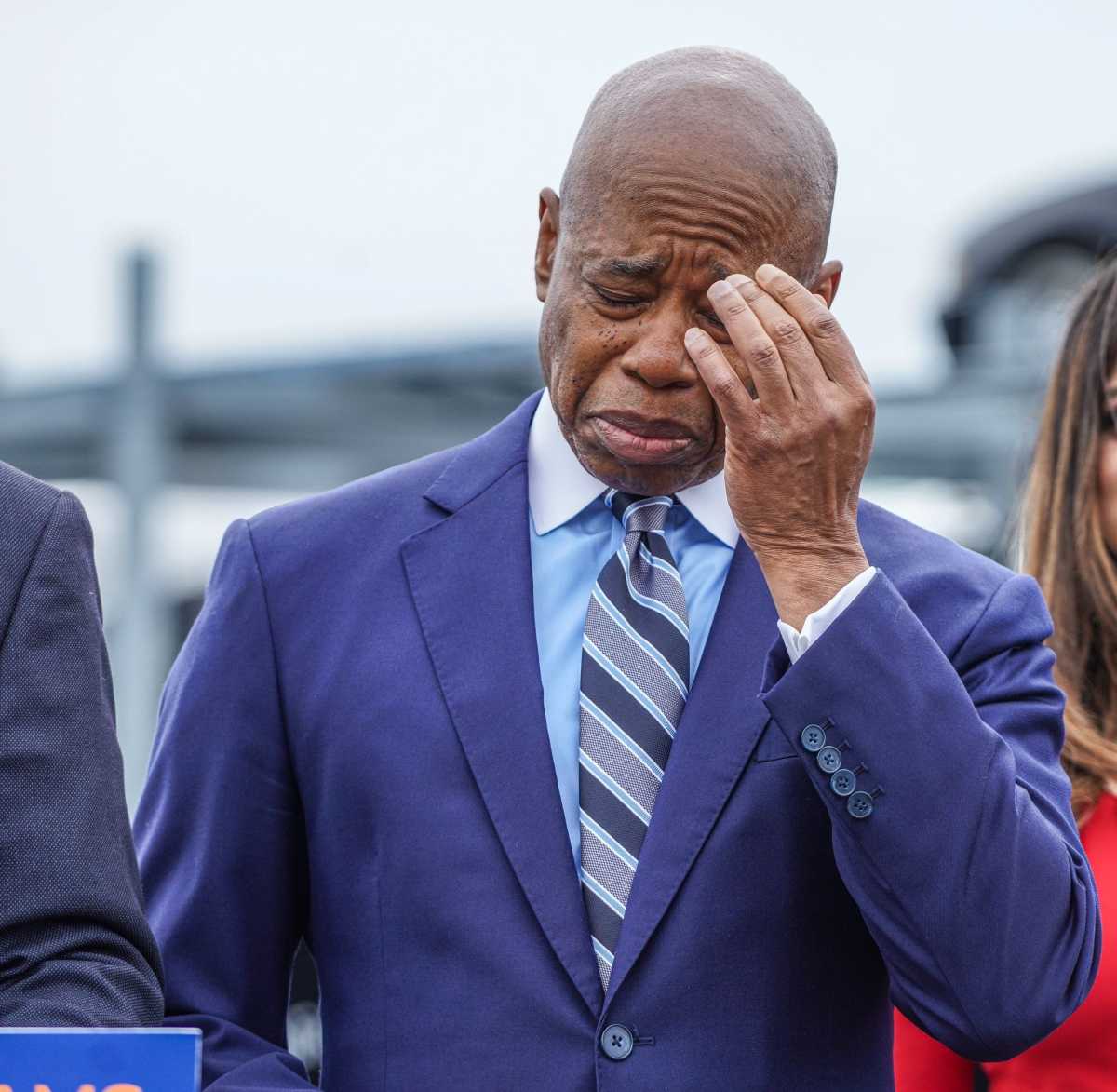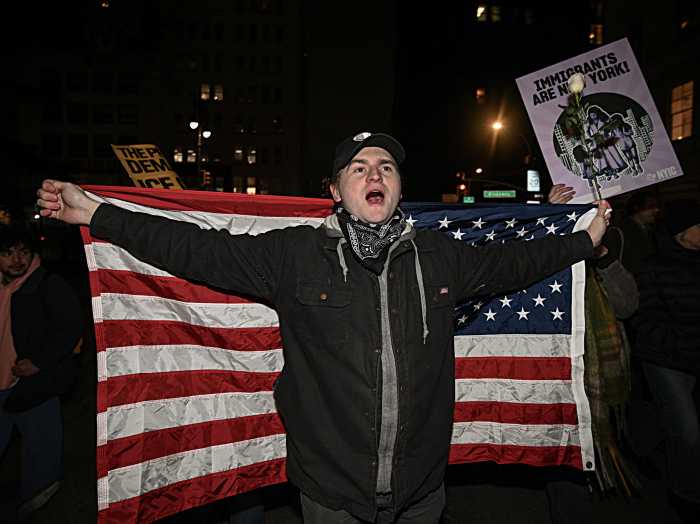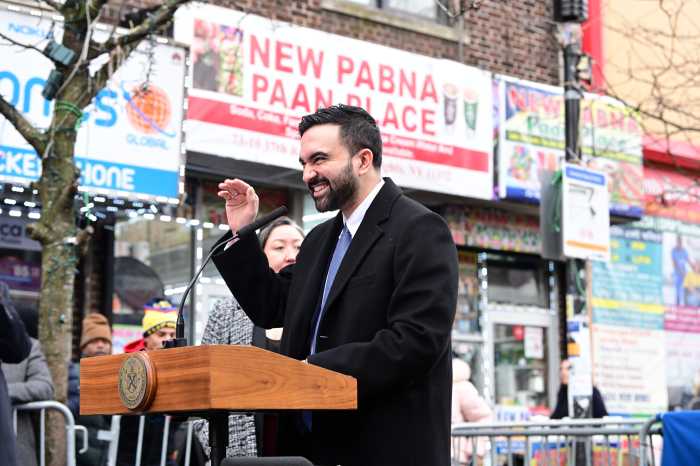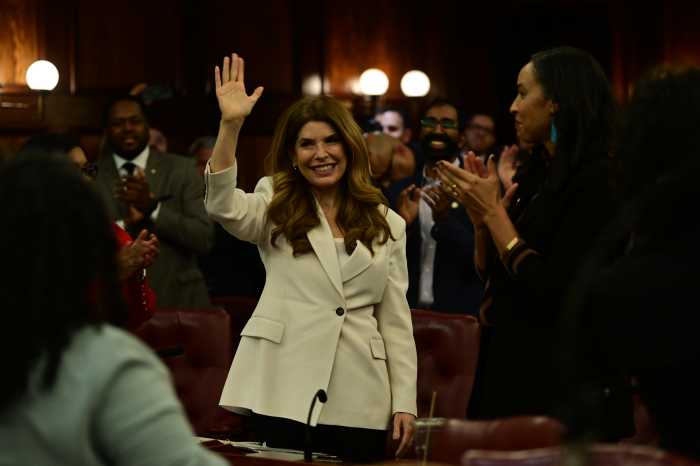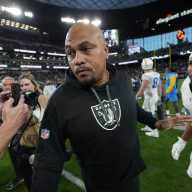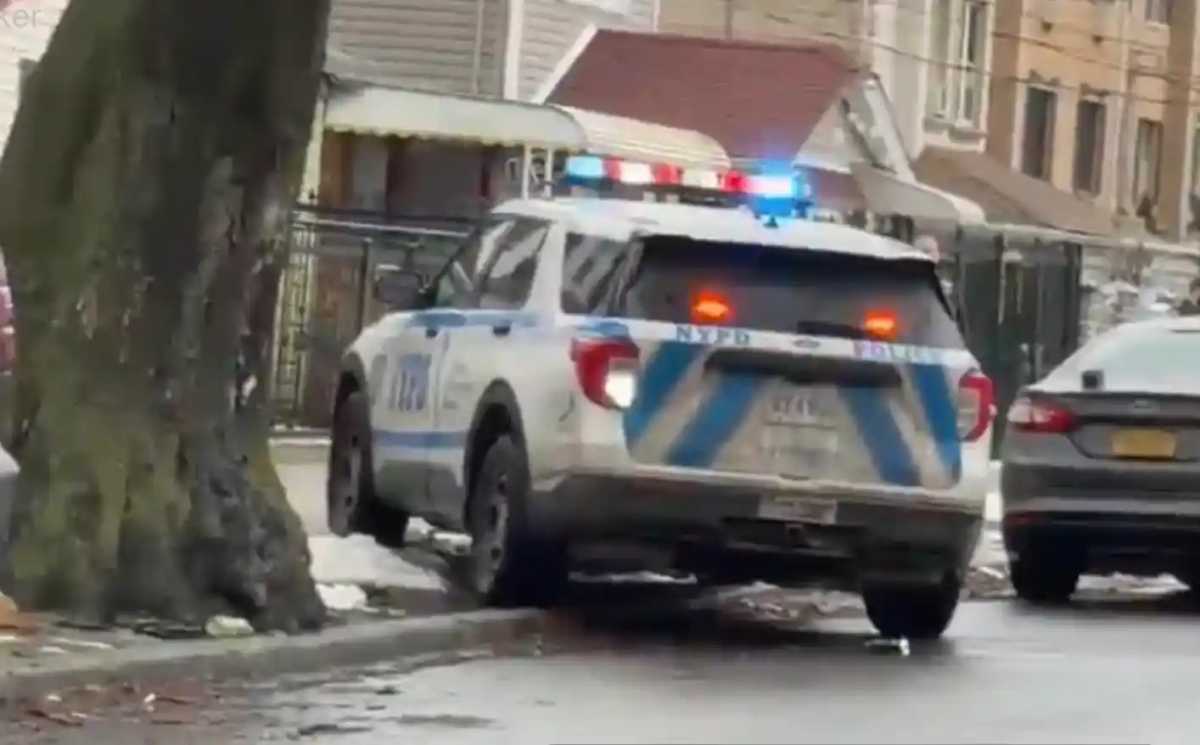Calls for Mayor Eric Adams to step down from office have poured in almost as quickly as the news of his indictment broke.
Four of the five Democrats who have already declared they would challenge Adams in the 2025 mayoral primary — current City Comptroller Brad Lander, former City Comptroller Scott Stringer, Brooklyn state Senator Zellnor Myrie and Queens Assembly Member Zohran Mamdani — each called for the mayor to step down immediately. So, too, had conservative Democratic City Council Member Robert Holden of Queens, often an ally of the moderate mayor.
The resignation calls seemed to have a common theme: While the indictment alone does not prove the mayor’s guilt, the weight of the criminal charges puts Adams in a politically untenable position and distracts City Hall from the more important issues facing New York today.
For his part, Mayor Adams doesn’t seem too worried about conducting business under the shroud of a federal prosecution. In a defiant video statement released Wednesday night, Adams addressed the myriad resignation calls head-on, saying he had no plans to step aside and would continue to do the job New Yorkers elected him to do back in 2021.
“I can also understand that everyday New Yorkers might be concerned that I cannot do my job while I face accusation,” Mayor Adams said. “But I have been facing these lies for months since I began to speak out for all of you, and their investigation started, yet the city has continued to improve. Make no mistake, you elected me to lead this city — and lead it I will.”
Who takes over?
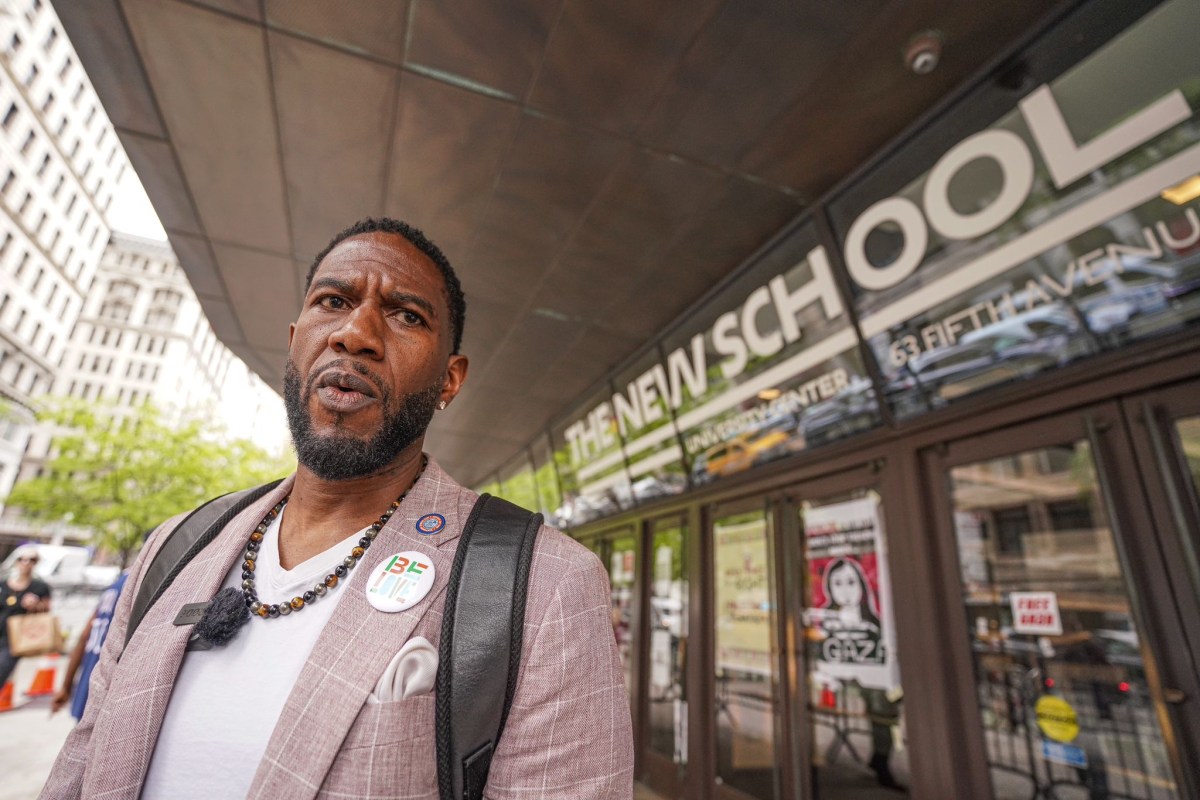
Should the mayor eventually acquiesce to the resignation calls, it would set off a rather chaotic search for a successor.
According to the New York City Charter, if there is a mayoral vacancy, the public advocate (in this case, Jumaane Williams) becomes the acting mayor. Williams has no more than three days upon taking office in the acting capacity to call a special mayoral election.
But there is wide flexibility as to when that special election would or could occur. Much of it depends on the election calendar, explained Professor Stephen Louis, adjunct professor and counsel at New York Law School’s Center for New York City and State Law.
“There are many different scenarios depending on where you are in a particular term of office and where you are in the calendar year,” Louis said.
Many factors would determine when the special election could be held, such as how far the mayor is into his term or even if an election day falls on a holiday.
“Williams would call a special election, but we’re basically talking about something that would be within a two- to three-month window, very approximately.
If, for some reason, Williams can not serve as mayor, Lander would be the next in line to fill the position, per the city charter.
Could the governor step in?

Other external forces could come into play, however, if Mayor Adams refuses to step down.
The city’s charter states that the governor, Kathy Hochul, can remove Adams from office if he is charged with a crime. However, that does not appear to be on the table at the moment.
A governor’s spokesperson told amNewYork Metro that it is too early to comment, though she is monitoring the events.
“Governor Hochul is aware of these concerning news reports and is monitoring the situation,” the spokesperson said. “It would be premature to comment further until the matter is confirmed by law enforcement.”
Could an ‘inability committee’ fire the mayor?
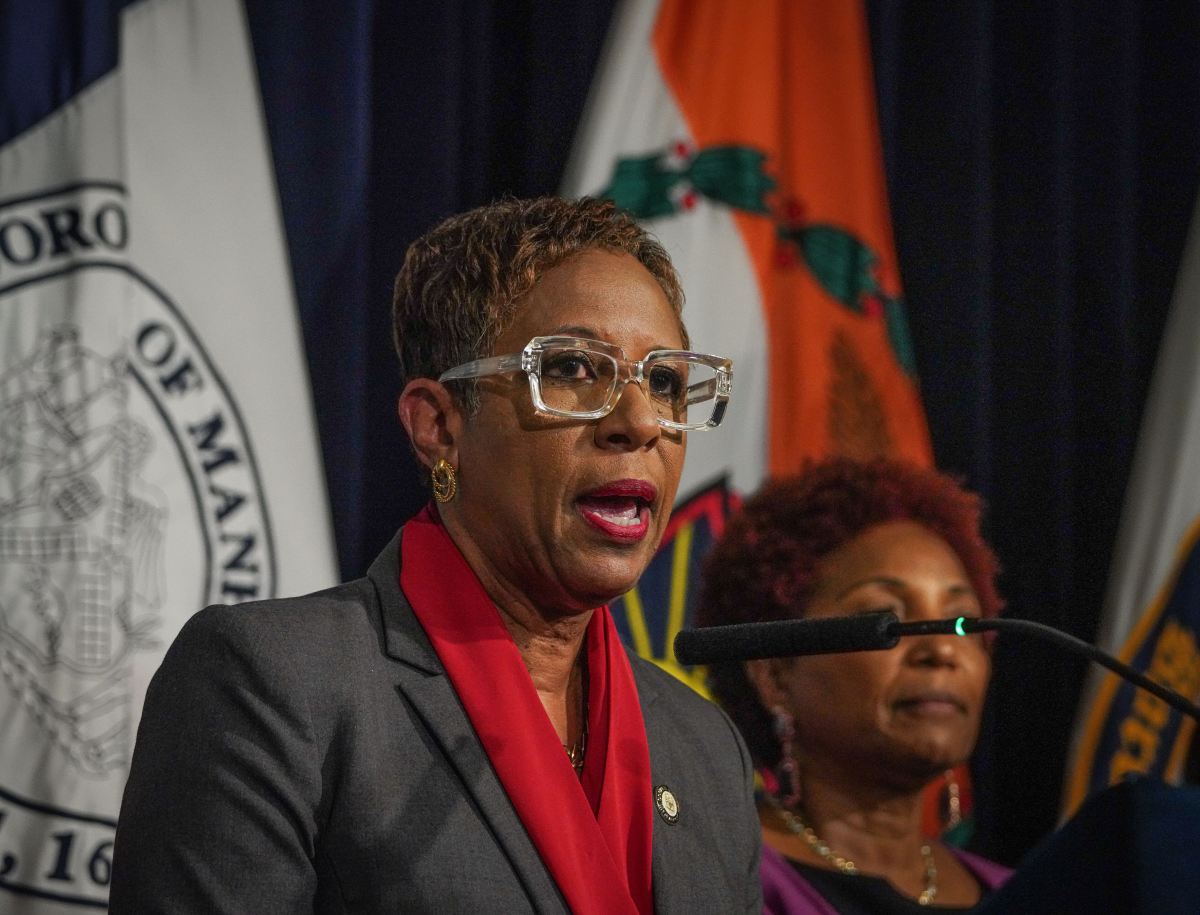
Meanwhile, members of the city government could also form an ad-hoc “inability committee” to remove the mayor from office. This committee would include five members: the city’s corporation council, comptroller, speaker of the city council, the borough president with the longest term in office — and even a deputy mayor appointed by the mayor himself.
Currently, those members would be Lander, Queens Borough President Donovan Richards, Speaker Adrienne Adams, and a deputy mayor chosen by Mayor Adams. The corporation counsel post is currently vacant; Mayor Adams had previously nominated Randy Mastro to the post, but the veteran litigator withdrew his nomination after a bruising City Council confirmation hearing this summer.
However, the city does have an acting corporation counsel, who has the full powers of the office.
According to the city charter, four out of the five inability committee members would need to vote “yes” to discharge the mayor from office. Even if they did, however, the mayor could still dispute the committee’s judgment.
“That goes to the city council, ultimately,” Louis, the professor at New York Law School, said. Mayor Adams and the City Council have repeatedly clashed in recent months, so it might be difficult for the mayor, in such a scenario, to find much support for staying in office.
Experts say the city charter’s provisions are unclear on what constitutes inability or whether a mayor under indictment meets such a definition. The inability committee clause would likely be implemented only in extreme cases.
“So this is an alternate path, that’s true, but this particular provision isn’t about malfeasance or doing a bad job,” Louis said. “It’s more about the mayor can not do the job, or is not doing it, or he’s refusing to do what is required as mayor.”
Read More: https://www.amny.com/news/
